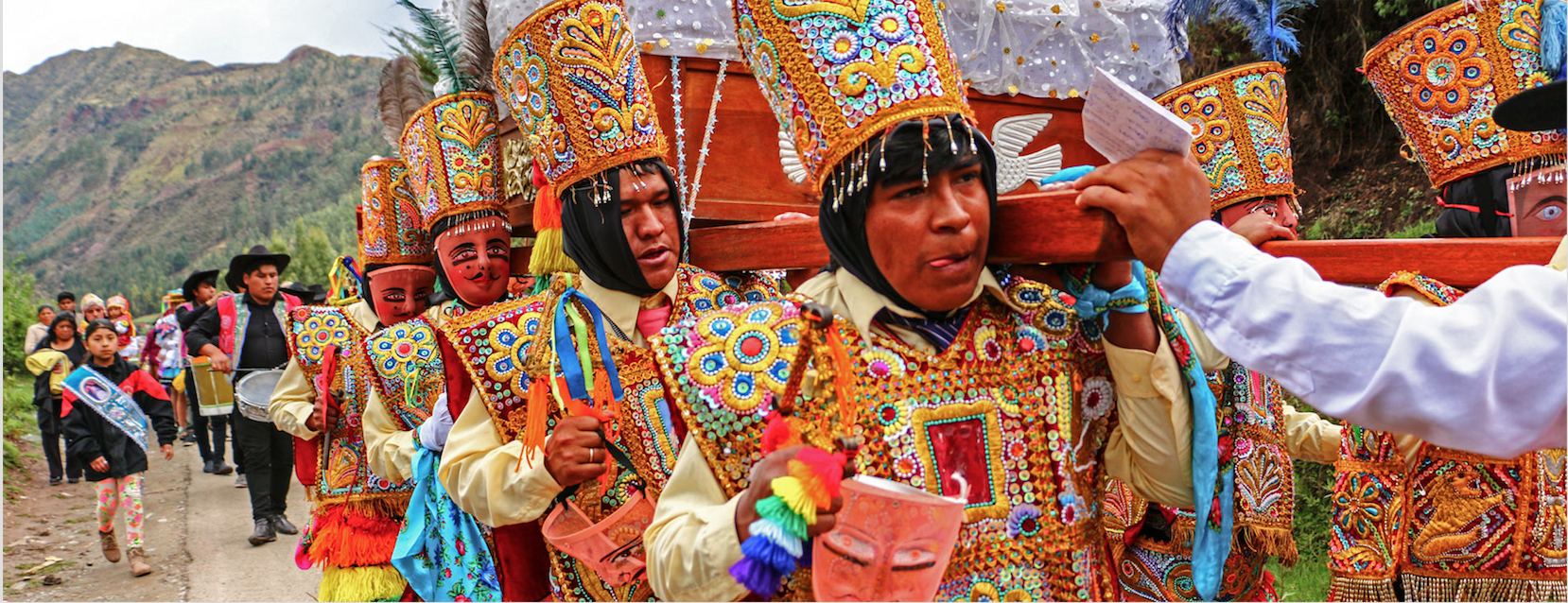A Clash of Culture in Peru
By Sarah Dean
Home to the legendary Incas, Peru is flooded with cultural traditions and customs. The centre of it all being its capital, Cusco, where you will start your unforgettable volunteering experience with us.
The Incas have weaved their long-lasting, native traditions together with Spanish culture to create some of the norms and customs we see today in modern Peru.
Pachamama – Mother Earth
In Inca mythology, Pachamama is a fertility goddess, mother of Inti the sun god and Mama Killa the moon goddess and is respected by the indigenous people. She embodies the mountains and has power over planting and harvesting and has the ability to cause earthquakes.
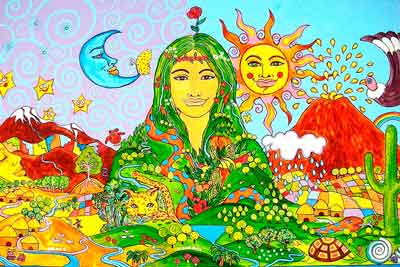
She is worshiped on ‘Martes de challa’ where Priests sacrifice guinea pigs and llamas and burn clothing to give to her. On this day people will bury food, burn incense, throw candies to thank the goddess for their harvests.
Religion
In current times, Roman Catholicism is the predominate religion found in Peru. The faith was introduced to Peru in the 16th century by the Spanish. About 80% of Peruvians identify as Catholic and this is evident by the several churches found, from some of the big cities to the smallest of villages. But Peruvians do blend their faith with more traditional rituals like honouring Pachamama and Inti in their offerings and festivals.
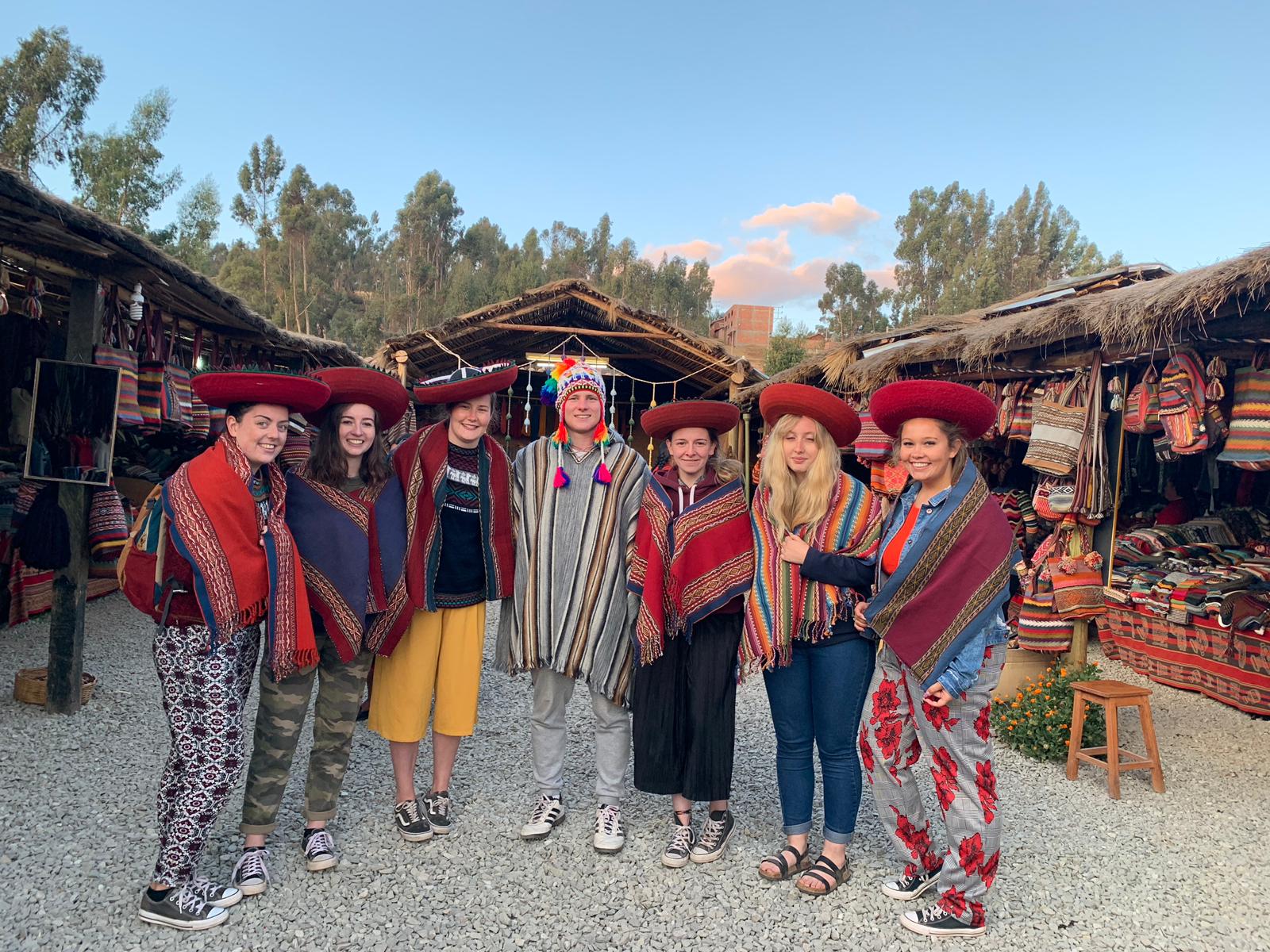
Materials & Traditional Dress
Indigenous women wear bright colourful layers with patterned ‘Llicllas,’ handmade skirts and round bright hats known as ‘Monteras.’ The men’s traditional clothing is not as colourful, but have small aspects that stand out. They may wear more faded trousers with a poncho and patterned hat with string hanging from the sides. These traditional clothes are probably the most visible remnant of Inca culture.
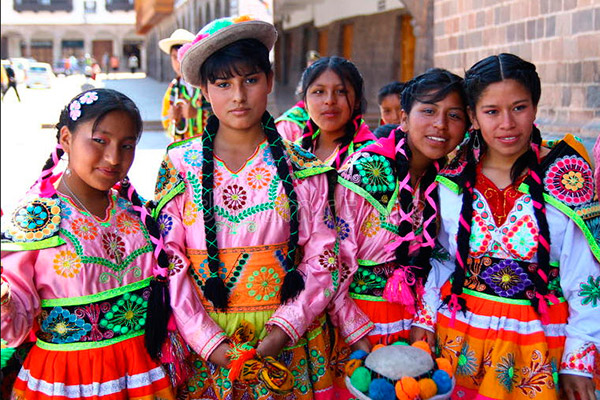
Language
While the official language of Peru is Spanish, there are quite a number of indigenous languages that also have official status in communities they are commonly spoken.
Even though Cusco is a very popular area for tourists, English is not very common so it is important to pick up on some Spanish prior to arrival.
Quechua is known as Peru’s second official language and it much more prevalent when you leave the coast.
Social Behaviours & greetings
Before travelling to Peru, you should be aware of some of the social conventions you may encounter, these are considered ‘unwritten laws.’
Personal space: When having a conversation with a local, they are likely to stand much closer to you than you’re probably use to. It’s important to understand that you shouldn’t be alarmed and that backing away would be seen as rude.
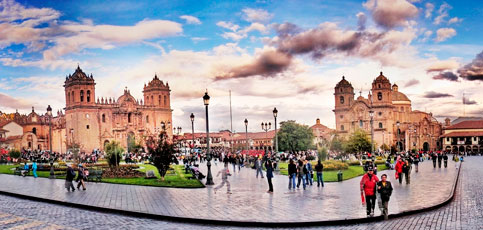
Phrases: Peruvians are very polite. Even if you don’t know the person, you’re passing it is kind to interact, but what can you say?
- Holá: Hello
- Buenos días: Good day/good morning - Use this phrase until midday
- Bunas tardes: Good afternoon/good evening – Use this phrase from midday till night time
- Buanas noches: Good night – Use at night time as a way of saying goodbye
If you’re wanting to ask someone how they are you can say “¿como estás?" for an informal interaction, but if you are speaking to a stranger or maybe a teacher you would drop the ‘s’ and say “¿como está?”
Goodbyes: You can use the term “adios” but there are a few ways of saying goodbye to someone.
- Hasta luego: See you later
- Hasta mañana: See you tomorrow
- Hasta pronto: See you soon
- Hasta entonces: See you then
Remedies
The Incas were extremely knowledgeable when it came to medicine and plant and herb properties. They could treat common colds, headaches and infections. The most common remedy, which is widely used in Peru today, is the use of Coca leaves to help with altitude sickness. You can chew on these leaves or have them in hot water to drink as a tea.
If you’re a lover of food be sure to check out our blog on Peruvian food here.
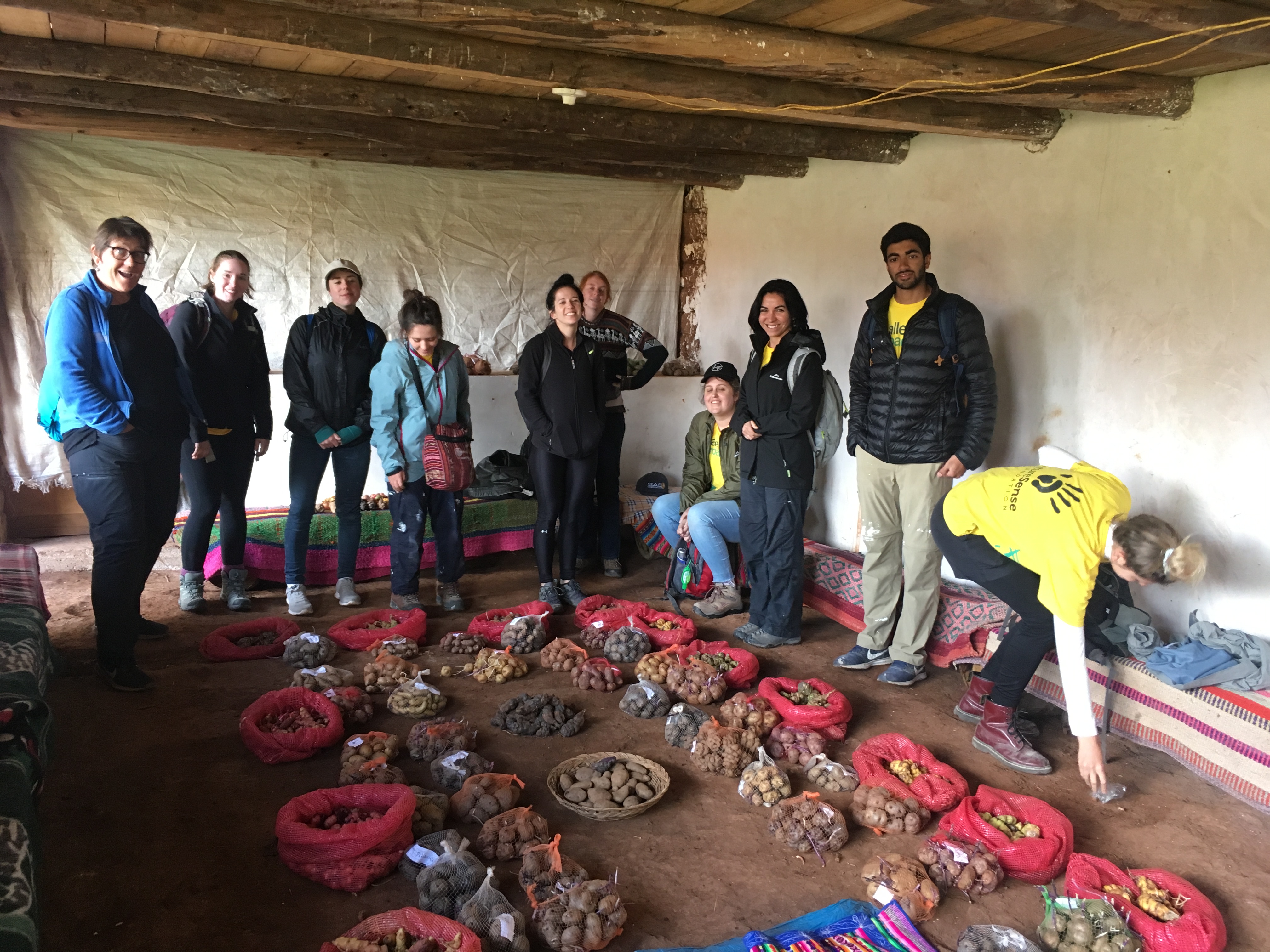
Peru is a spectacular country to visit if you’re looking to have a cultural experience. It is a unique place with a blend of Catholic values and traditional culture. Joining us in Peru, you’ll get some once in a lifetime opportunities as you are brought into a local community. We also offer additional activities where you can dress in Andean clothing and see how to live the life of an Inca. For more information on our trips to Peru checkout our website here.





